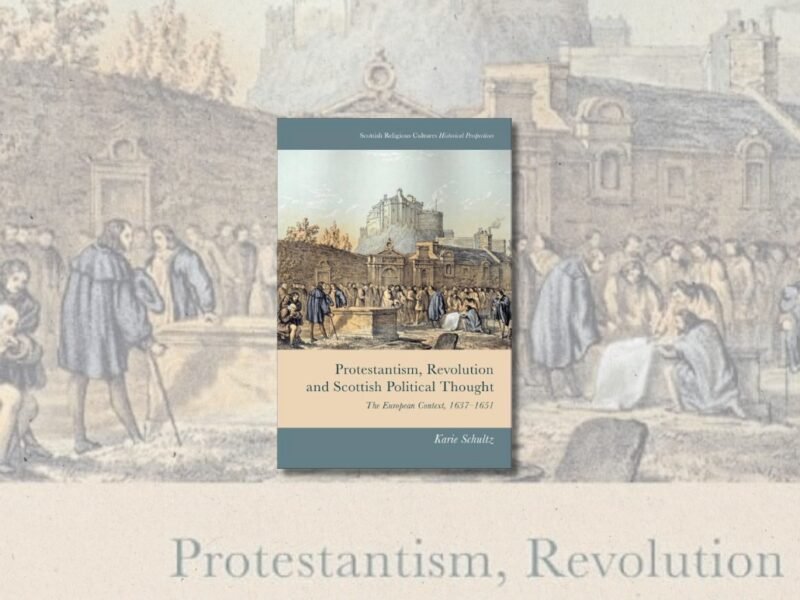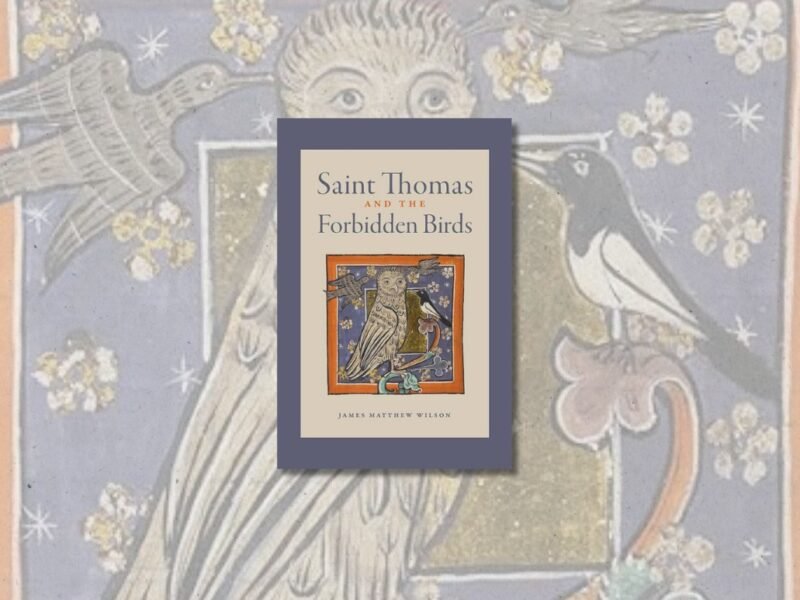William Tyndale: A Very Brief History. By Melvyn Bragg. London: SPCK (2017, 2019). 106 pp. $18.00 (hardcover). $12.00 (paper).[1] $6.99 (Kindle).
William Tyndale gave us the English Bible and thereby also the English language as it has been read, written, and spoken since. Melvyn Bragg believes that Tyndale nonetheless is largely a forgotten man—his story, contributions, and legacy long overlooked by intention or neglect. One could quibble with Bragg about the degree this undergirding and motivating assumption for his book is true. But certainly most new college students I encounter would know nothing of Tyndale, given the state of their previous education (and religious education). And nowadays, unless one has studied Reformation or Tudor history, one is very likely to have passed Tyndale by. Bragg, who energetically aims to remedy this, is perhaps more correct in his broad assumption than we might care to admit.
Those who do not know Tyndale are missing out on a great story, to be sure. It is one of adventure and skullduggery, of spies and betrayal, of theology and politics, of erudition and of cunning. It is a story of Tyndale’s rebelling against temporal authority as he labored to respond to a higher authority. It is a story with twists and turns, of his racing against time to elude capture as he accomplished his pioneering, world-transforming translation work. It is a story that ends in violence and death, but also one in which that is not the true ending—at least not for any speaker of English or reader of the English Bible. It is also the quintessential story of a Christian martyr, for whom death by flames was likewise not the end.
The BBC’s Melvyn Bragg is a superb choice to tell this story, as he is by profession a great storyteller, both as a prolific writer and as a broadcast presenter. Though not a household name in America, in Britain, Bragg is familiar especially for his long-running BBC Radio 4 weekly show, In Our Time, which has logged more than 800 episodes (and is now also a popular podcast). In Our Time explores subjects of history and culture (among other topics), with Bragg and his expert guests unpacking and explaining in an understandable fashion for his broad audience sometimes complex events and ideas. It would not be an overstatement to say that he is Britain’s most popular public educator or intellectual outside the academy—which is to say his main strength lies in teaching the general public more than it is in scholarship. And those are not bad credentials for telling such a story as this. Bragg is plain with his readers that his short popular history is not an academic work. He rightly points to David Daniell’s 1994 William Tyndale: A Biography[2] as the best current resource for deeper study of Tyndale and acknowledges he relied heavily upon it.
Bragg is also not in general perceived as a religious writer or commentator. But in this volume in SPCK’s “very brief history” series, Bragg does a stellar job giving a concise, yet rich, account of William Tyndale’s life and legacy, doing so with evident theological understanding and in a winsome and approachable manner reminiscent of his broadcast work.
In fact, this book sprung from Bragg’s 2013 BBC television documentary about Tyndale, “The Most Dangerous Man in Tudor England,” which conveyed the Tyndale story in a concise, enthusiastic, and memorable (if somewhat quirky) way. One gets the sense from the documentary that Bragg genuinely reveres Tyndale and has extraordinary affection for the English Bible that was Tyndale’s legacy. And that same affection comes through in Bragg’s short Tyndale history: it is not a wholly objective undertaking. One could even say Bragg is a William Tyndale evangelist.
Bragg’s interest in Tyndale seems to have been sparked several years before that documentary, as he wrote about the history and importance of the King James Bible in his 2011 book, The Book of Books: The Radical Impact of the King James Bible 1611-2011[3]—timed to mark the 400th year since that great achievement. Some 80 to 93 percent of the King James Version can be attributed to Tyndale, and, by intent or osmosis, the Bibles that followed the King James also reflect that version’s phraseology, diction, cadence, and vocabulary. Notably, Tyndale accomplished quickly on his own what it took a large committee to achieve with the later King James Bible that built on his work.
Bragg is so passionate about this Tyndale legacy that he ends his book with a postscript lamenting the fading away of the King James Bible in Britain—all because, he says, “Tyndale was too complicated!” He even blames the emptying-out of Church of England congregations on the abandonment of the King James (would that it were that simple). Bragg’s last words are a plaintive plea to have monthly Anglican services that use the King James: “For non-Christians it would be a feast of language, adventure, and argument,” he asserts. “For all who listened it would be to hear and understand the deepest spring of our cultural history through the mind of a unique genius: William Tyndale.” (99)
Given this manifesto of sorts, it will perhaps surprise the reader to learn that Bragg does not consider himself a Christian believer. Rather, he borrows Einstein’s ambivalent “believing unbeliever” to describe himself.[4] But that detached and agnostic perspective actually strengthens the book, as it enhances Bragg’s credibility when he makes the case for Tyndale’s literary and cultural importance beyond those who rely on the English Bible for spiritual support. (One might wonder, given Bragg’s obviously deep love of the English Bible, whether the story of his own religious belief—which began as an Anglican choirboy—has a last chapter still to be written.)
After a very helpful chronology outlining Tyndale’s life, Bragg presents in Part One Tyndale’s story, start to finish, always alongside the political and theological context that informs it. That story is one with many missing pieces, owing to poor records, the stealth nature of his translation work, and Tyndale’s clandestine movements in exile. But in essence, it is the story of a nation where the possession of a Bible in the vernacular was illegal and punishable even by death becoming—thanks almost entirely to Tyndale—a nation where all had free access to a Bible in compelling, comprehensible English, either to read or to hear. (And what Tyndale produced was very much written to be read aloud.) The key to understanding Tyndale and all he set out to achieve, Bragg believes, is the image Tyndale offered in an argument about the Pope’s authority, in which he responds that he (Tyndale) would cause a boy who drives a plough to know more of the Scripture than his interlocutors. If an illiterate ploughboy could so know God’s Word, so could everyone.
Bragg follows Tyndale from his early failed attempt in 1523 to get the Bishop of London’s support for his translation project to his going to the continent to complete his work. Tyndale’s New Testament was finished in 1525 and was smuggled into Britain. The then-declared heretic apparently even sold copies to his tormentors and pursuers, as the Bishop of London burned thousands in 1526 at St. Paul’s. But the book was done and would not and could not be contained, even if the same would not be true for Tyndale. Tyndale revised his New Testament six years later and, having mastered Hebrew, worked on translating the Old Testament, completing the Pentateuch. Throughout he had Thomas More pursuing and trying to silence him (in every way) and the reform-minded and sympathetic Thomas Cromwell trying to bring him back to Britain. But Tyndale remained in exile for his safety, even as certain events seemed to favor his return, including Thomas More’s beheading for treason. Coverdale’s 1535 Bible and the 1537 Matthew Bible (which had the King’s imprimatur but used a pseudonym to conceal Tyndale’s authorship) were both in essence Tyndale creations. Between the appearance of these two Bibles, however, in October 1536, Tyndale was executed at Vilvoorde in Belgium, having been betrayed by a spy the isolated Tyndale took into his confidence as a friend and supposed brother in Christ.
The final quarter of the book comprises Part Two, in which Bragg makes his case for why Tyndale and his Bible (especially as it is reflected in the King James Version) are so important, even today. He sees Tyndale as at least equal with Shakespeare in the formation of the English language and integral to the global spread and primacy of English. Tyndale is probably responsible for more English phrases than any other single writer. Bragg sees the English Bible’s place in the United States, despite our disparate religious groups, as enabling a shared religious impulse and identity. He makes a case for the power of the English Bible in movements in Britain and America to drive or reinforce social reform, even as it also enhanced literature and the arts of all sorts. Tyndale was a “profound democrat,” Bragg observes. “Tyndale’s immovable belief was that we are all equal in the sight of God and in the lives of other men and women; therefore God’s words must be made plain.” (97)
Unfortunately, Bragg’s credibility in telling the Tyndale story is diminished by a basic mistake, an error (one hopes unintentional) that his knowledge of history and access to good editors should have precluded. In summarizing the events leading to Henry’s break with Rome, Bragg writes: “In 1533 he [Henry] wrenched an annulment from the Pope, declared his marriage to Katherine null and void, turned his back on European Catholicism and married Anne Boleyn.” (66) Of course, the whole precipitating issue prompting the break from Rome was Pope Clement VII’s steadfast refusal to grant such an annulment—i.e., Henry’s failure to wrench an annulment from the Pope. It was Thomas Cranmer who provided that dissolution and the Roman Catholic Church has never recognized it as valid. One might be able to say that Henry endeavored to wrench an annulment from the Pope, or that he purported to wrench annulment authority from Pope, or perhaps that he wrenched an annulment from the Church (in England). But as stated this summarizing sentence is manifestly wrong and misleading. How this made it to print (and was not corrected in the 2019 paperback or Kindle edition) is perplexing.
Another example of regrettable editing is what appears to be Thomas More’s infamous scatological insult about Luther being presented with ellipses in a way the reader might easily think (wrongly) More was directing it toward Tyndale. (49)
As an authoritative history of Tyndale, Daniell’s book is far superior in its detail and scholarship—and (in part because of the same compelling story) is also highly readable. But that much longer book is unlikely to appeal to those who do not yet know about William Tyndale or who may be looking for just basic information about him. Bragg’s thoroughly enjoyable, ten-chapter volume is better for them and those wanting a Tyndale refresher. It is also well suited for book groups or church school classes (perhaps especially for Anglicans). We all should know Tyndale better, if only to be convicted and inspired—and Bragg’s short book accomplishes that ably.
Its few limitations notwithstanding, William Tyndale: A Very Brief History is probably the best currently available popular introduction to Tyndale, whose extraordinary sacrifices and achievements continue to mold how we think, write, and speak—and how we pray, worship and believe.
- The paperback version is best avoided. The stiff cover’s ornamental die-cut ‘T’ opening that occupies over half its length causes it to crease almost immediately, making the cover rather useless and the book uncomfortable to hold. ↑
- David Daniells, William Tyndale: A Biography (New Haven: Yale, 1994). ↑
- Melvyn Bragg, The Book of Books: The Radical Impact of the King James Bible 1611-2011 (London: Hodder & Stoughton, 2011). ↑
- Melvyn Bragg, “My First Steps Back on the Road to Faith,” The Telegraph, Jun 11, 2011, https://www.telegraph.co.uk/news/religion/8567848/Melvyn-Bragg-My-first-steps-back-on-the-road-to-faith.html (accessed Jun 17, 2020). ↑







'Book Review: William Tyndale: A Very Brief History by Melvyn Bragg' has no comments
Be the first to comment this post!